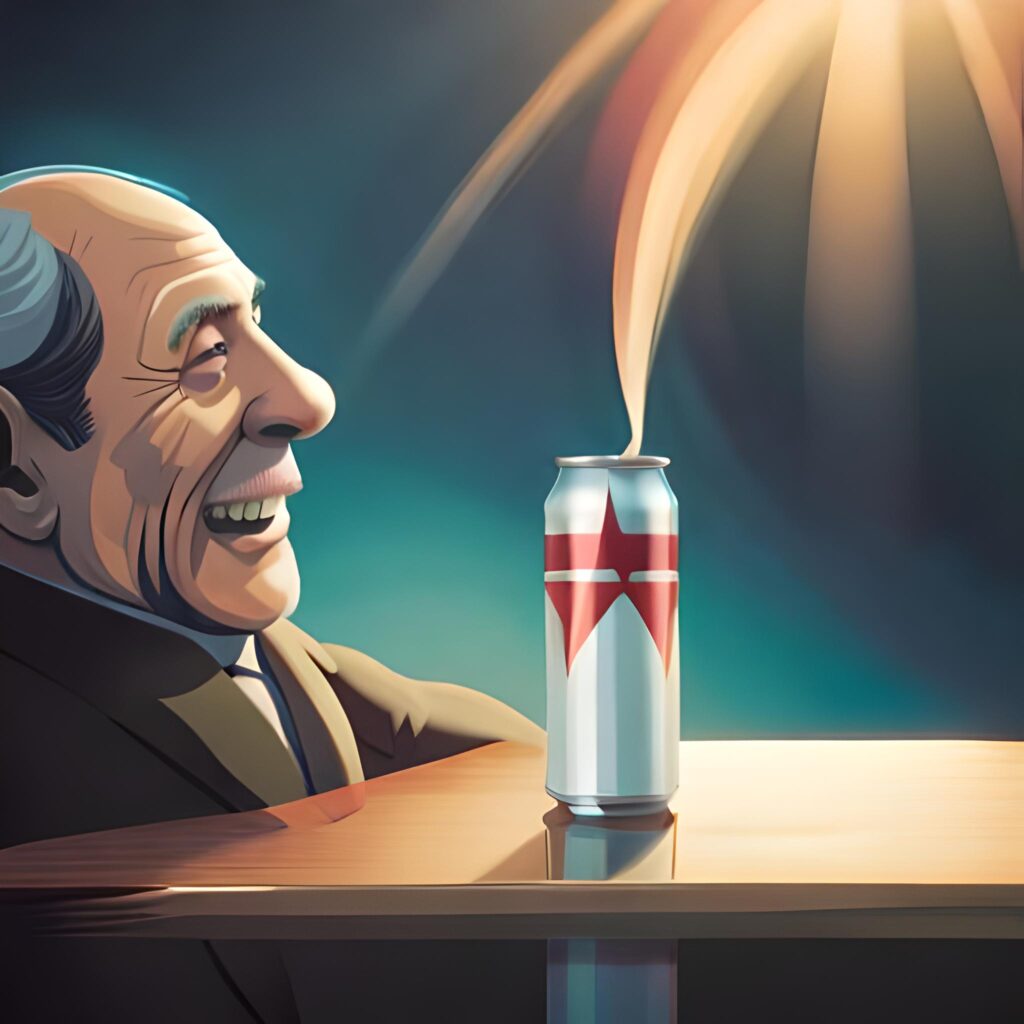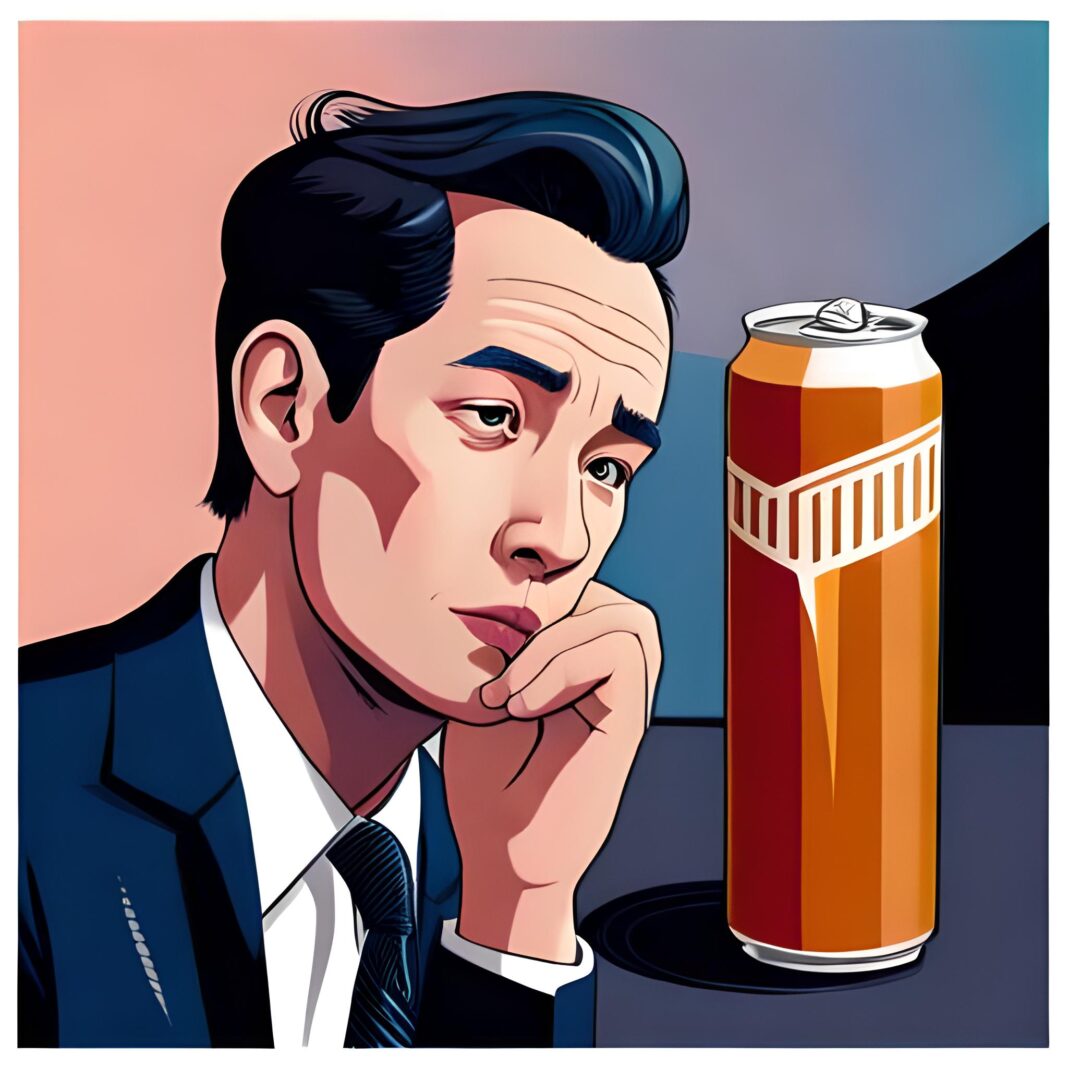Pros and Cons of Energy Drinks

Pros and Cons of Energy Drinks! Energy drinks, such as Red Bull and Monster, have gained significant popularity in recent years, particularly among individuals seeking a quick boost of energy and increased alertness. These beverages, known for their high caffeine content, are often marketed as a way to enhance performance and productivity. However, it is essential to understand both the advantages and drawbacks associated with energy drinks before incorporating them into your routine. In this article, we will explore the pros and cons of energy drinks to help you make an informed decision.
1. Introduction: Understanding Energy Drinks
Energy drinks, such as Red Bull and Monster, are beverages designed to provide a temporary boost in energy and mental alertness. They typically contain high levels of caffeine, along with other ingredients such as taurine, guarana, and B-vitamins. While energy drinks are often marketed as a way to enhance performance and productivity, it's crucial to weigh the pros and cons of energy drinks before incorporating them into your routine.
2. The Pros of Energy Drinks

2.1 Increased Alertness and Focus
One of the primary benefits of energy drinks is their ability to increase alertness and improve focus. According to a study published in the journal “Nutrients,” caffeine has been shown to enhance cognitive performance, including attention and reaction time. Energy drinks can provide a quick mental boost, helping individuals stay more alert and focused during tasks that require concentration.
“Energy drinks can provide a quick pick-me-up when you need to power through a busy day or a demanding workout.” – Source
2.2 Enhanced Physical Performance
Energy drinks can also have a positive impact on physical performance. The caffeine and other stimulating ingredients can improve endurance, reduce fatigue, and increase muscle strength. A systematic review published in the journal “Sports Medicine” found that caffeine supplementation enhances various aspects of physical performance, including muscular strength and power, endurance exercise, and team sports performance . Athletes and individuals engaging in intense physical activities may benefit from the temporary boost provided by energy drinks.
“Caffeine has been shown to enhance cognitive performance, particularly for tasks that require vigilance and sustained attention.” – Source
2.3 Convenience and Portability
Energy drinks offer convenience and portability, making them a popular choice for individuals with busy lifestyles. They are readily available in various sizes and can be easily consumed on the go. This accessibility makes energy drinks a convenient option for those needing a quick energy boost during work or recreational activities.
“Energy drinks offer convenience and instant access to a boost of energy whenever and wherever you need it.” – Source
2.4 Variety of Flavors and Options
Another advantage of energy drinks is the wide range of flavors and options available in the market. From traditional caffeinated beverages to sugar-free alternatives, consumers can choose an energy drink that aligns with their taste preferences and dietary needs. This variety ensures that there is an energy drink suitable for different individuals.
2.5 Improved Mood and Feelings of Well-being
Energy drinks can contribute to an improved mood
and feelings of well-being. According to a study published in the “Journal of Psychopharmacology,” caffeine intake has been associated with increased positive mood and decreased depressive symptoms. The caffeine content stimulates the release of dopamine and other neurotransmitters associated with pleasure and reward. As a result, consuming energy drinks may temporarily elevate mood and promote a sense of well-being.
“Caffeine, the primary active ingredient in most energy drinks, has been shown to improve endurance exercise performance.” – Source
3. The Cons of Energy Drinks

3.1 High Caffeine Content
While energy drinks can provide temporary benefits, excessive consumption can lead to adverse effects. Energy drinks often contain high levels of caffeine, with some brands exceeding 300 milligrams per serving. Consuming too much caffeine can result in increased heart rate, nervousness, anxiety, and even caffeine addiction. It is crucial to monitor your caffeine intake and avoid exceeding recommended limits.
“The high caffeine content in energy drinks can have both short-term and long-term effects on the body, including increased heart rate and blood pressure.” – Source
3.2 Potential for Dehydration
Energy drinks can have a diuretic effect on the body, potentially leading to dehydration if consumed excessively or alongside rigorous physical activity. The combination of caffeine and high sugar content can further contribute to fluid loss. It is essential to balance energy drink consumption with adequate hydration through water or other hydrating fluids.
3.3 Increased Heart Rate and Blood Pressure
The stimulating effects of energy drinks can cause a rapid increase in heart rate and blood pressure. This can be problematic, especially for individuals with pre-existing heart conditions or hypertension. A study published in the journal “JAMA” found that consuming a commercially available energy drink significantly increased systolic and diastolic blood pressure in healthy adults. Regular or excessive consumption of energy drinks may pose a risk to cardiovascular health and should be avoided in such cases.
3.4 Negative Impact on Sleep Patterns
Energy drinks, particularly those consumed later in the day, can disrupt sleep patterns. The high caffeine content can interfere with falling asleep and reduce the overall quality of sleep. According to a study published in the “Journal of Clinical Sleep Medicine,” energy drink consumption has been associated with decreased sleep duration and increased daytime sleepiness among adolescents. To ensure a good night's rest, it is advisable to limit energy drink consumption, especially in the evening.
3.5 Sugar and Calorie Overload
Many energy drinks contain significant amounts of added sugars, which can contribute to excessive calorie intake and weight gain when consumed frequently. The American Heart Association recommends limiting added sugar intake to no more than 6 teaspoons (25 grams) per day for women and 9 teaspoons (38 grams) per day for men. It's important to read the nutrition labels and choose energy drinks with lower sugar content or opt for sugar-free alternatives to minimize the impact on overall health and weight management.
“Many energy drinks contain significant amounts of sugar, which can contribute to weight gain and other health problems.” – Source
4. Moderation and Responsible Consumption

To strike a balance between the potential benefits and risks associated with energy drinks, moderation and responsible consumption are key. It is recommended to limit the intake of energy drinks to moderate amounts, considering personal tolerance, health condition, and overall dietary habits. Additionally, it is advisable to consult with a healthcare professional if you have any concerns or pre-existing health conditions.
5. Conclusion
Energy drinks, such as Red Bull and Monster, can provide a quick energy boost and increased alertness, making them appealing to many individuals. However, it's crucial to consider the potential drawbacks and make informed choices regarding their consumption. Monitoring caffeine intake, staying hydrated, and being mindful of overall sugar and calorie intake are essential for maintaining a healthy balance. Ultimately, individual needs, preferences, and health considerations should guide the decision to incorporate energy drinks into one's lifestyle.
6. FAQs (Frequently Asked Questions)
Q1: Are energy drinks suitable for everyone?
A: Energy drinks are not recommended for children, pregnant
or breastfeeding women, individuals sensitive to caffeine, or those with underlying health conditions. It is important to assess individual tolerance and consult a healthcare professional if in doubt.
Q2: Can energy drinks replace sleep?
A: No, energy drinks cannot replace the restorative effects of sleep. Adequate sleep is vital for overall health and well-being, and energy drinks should not be used as a substitute for sufficient sleep.
Q3: Are there any healthier alternatives to energy drinks?
A: Yes, several healthier alternatives can provide a natural energy boost, such as consuming a balanced diet, staying hydrated, regular exercise, and managing stress levels effectively.
7. Share the Article and Stay Informed
If you found this article informative, please consider sharing it with your friends and family. Stay informed about the latest health and wellness topics by subscribing to our newsletter.
8. Sign Up for Our Newsletter
Get the latest updates on health and wellness straight to your inbox. Sign up for our newsletter today!
9. Purchase High-Quality Energy Drinks
Looking for high-quality energy drinks that prioritize natural ingredients and responsible formulation? Visit our store to explore a wide range of energy drinks that meet your needs.
Ready to make an informed decision about the pros and cons of energy drinks? Share this article with your friends and family to spread awareness. Sign up for our newsletter to receive more health-related tips and updates. And for healthier energy alternatives, check out our selection of natural energy-boosting products here. Take charge of your energy levels and embrace a healthier lifestyle today!




